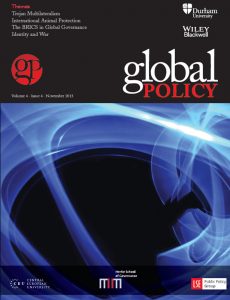Mass Exodus
Sociologists are frequently interested in how communities are imagined, built, developed, and restructured. Studies of how communities are destroyed, abolished, or evicted are typically associated with scholarship on genocide, war, natural disaster, or gentrification. These studies often equate the termination of a community with trauma, personal loss, and inequality. In some cases, communities dissolve in less dramatic ways. In some cases, as the needs of a population change, people and the communities they created travel from one space to...








1467-7660/asset/DECH_right.gif?v=1&s=a8dee74c7ae152de95ab4f33ecaa1a00526b2bd2)
